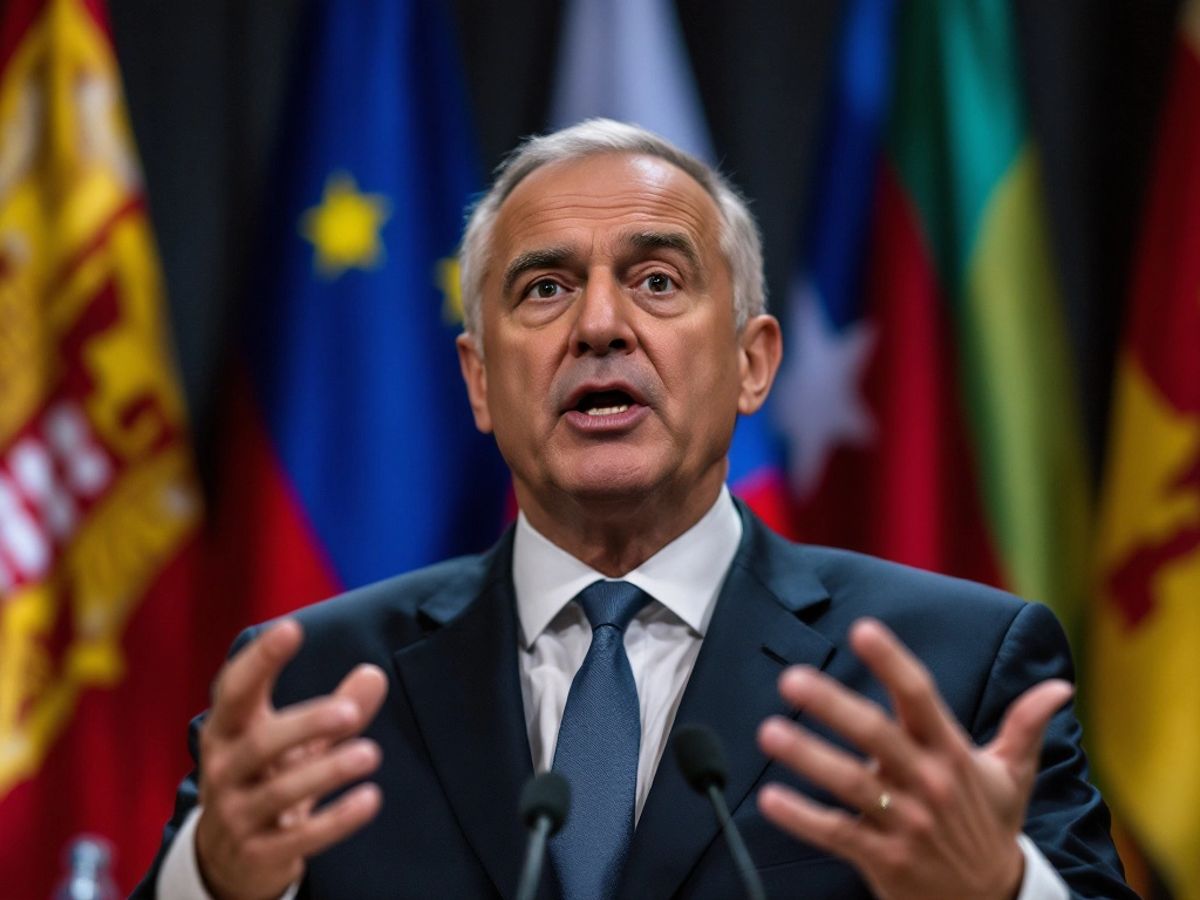European Commission President Ursula von der Leyen recently condemned Russia’s hybrid warfare tactics aimed at destabilizing democracies in the Western Balkans. During her visit to Kosovo, she emphasized the European Union’s commitment to countering misinformation and supporting the region’s aspirations for EU membership.
Key Takeaways
- Ursula von der Leyen denounced Russia’s hybrid attacks on Western Balkan democracies.
- The EU is actively working to debunk misinformation and promote transparency.
- Von der Leyen’s visit included discussions on EU enlargement and economic development in the region.
- The Western Balkans are at various stages of EU membership applications, with ongoing frustrations over the slow process.
Context of the Visit
Von der Leyen’s remarks came during a trip to Kosovo, part of a broader initiative to reassure aspiring EU member states in the Western Balkans that their integration remains a priority for the 27-nation bloc. She highlighted the EU’s efforts to unveil Russian propaganda that seeks to undermine democratic institutions in the region.
Russia’s Influence in the Region
The Western Balkans, comprising Albania, Bosnia, Kosovo, Montenegro, North Macedonia, and Serbia, have been increasingly vulnerable to external influences, particularly from Russia. Serbia, in particular, has maintained close ties with Moscow and has resisted joining international sanctions against Russia following its invasion of Ukraine.
EU’s Commitment to Enlargement
Von der Leyen reiterated that EU enlargement will remain a top political agenda item for the next five years. She stated, "We have now all the necessary tools, all the necessary instruments in place, so let’s make it happen, let’s make it a reality, and work towards this common goal."
Economic Development Initiatives
Last year, the EU proposed a 6-billion-euro growth plan aimed at doubling the region’s economy over the next decade. This plan is contingent upon the implementation of reforms that align the economies of the Western Balkan countries with EU standards. The EU has recently approved reform agendas for several countries in the region, marking a significant step toward facilitating financial support under the growth plan.
Challenges Ahead
Despite the EU’s commitment, the pace of integration has frustrated many in the Western Balkans. The ongoing geopolitical tensions, particularly due to Russia’s actions, have prompted European leaders to accelerate their support for the region’s EU aspirations. However, the historical tensions between Kosovo and Serbia continue to pose challenges to regional stability and cooperation.
Conclusion
Ursula von der Leyen’s visit to Kosovo underscores the EU’s determination to counteract Russian influence in the Western Balkans while promoting democratic values and economic development. As the region navigates its path toward EU membership, the commitment to transparency and reform will be crucial in overcoming the challenges ahead.
Sources
- EU leader denounces Russia’s ‘hybrid war’ aiming to destabilize Western Balkan democracies | AP News, AP News.
- EU leader denounces Russia’s ‘hybrid war’ aiming to destabilize Western Balkan democracies | National | caledonianrecord.com, Caledonian Record.
- EU leader denounces Russia’s ‘hybrid war’ aiming to destabilize Western Balkan democracies | International | bgdailynews.com, Bowling Green Daily News.
- EU leader denounces Russia’s ‘hybrid war’ aiming to destabilize Western Balkan democracies | World | couriernews.com, couriernews.com.
- EU leader denounces Russia’s ‘hybrid war’ aiming to destabilize Western Balkan democracies | Ap | thederrick.com, thederrick.com.






